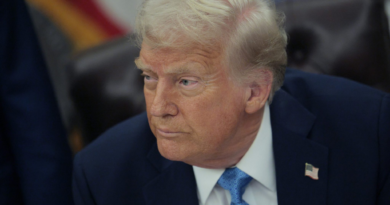The ‘Chinese Warren Buffett’ gives a moving eulogy for Charlie Munger, calling him the ‘enlightened’ embodiment of ‘modern-day Confucianism’
Charlie Munger was one of a kind. That was more evident than ever in the wake of the legendary investor and Berkshire Hathaway vice chairman’s death last week at age 99. A raft of corporate CEOs and renowned Wall Street investors reflected on—and lionized—Munger after his passing, sharing what the sharp-tongued, quick-witted right-hand man to Warren Buffett meant to them and others in finance and investing.
One of the most moving tributes to Munger came from Li Lu, founder and chairman of Himalaya Capital Management, a hedge fund known for its Munger-like discipline and value-oriented investing.
Lu is the only man besides Buffett who Munger ever trusted to invest his family’s fortune. And the hedge funder did so well with that task—earning a roughly 400% return on Munger’s original $90 million investment in the early 2000s—that the “Oracle of Pasadena” took to calling him “the Chinese Warren Buffett.”
Instead of praising Munger’s investing chops or prophetic predictions, Lu touched on what he said made the man truly great—an inimitable moral compass and passion for teaching.
“In our capitalist society, where do virtue, moral responsibility, truth-seeking, and public service fit in? Charlie Munger answered these questions through his long exemplary life,” Lu wrote in a Thursday Facebook post.
He described how Munger always “insisted on making money in the most morally sound way,” entering deals only when “if positions were reversed, he would comfortably take the other side.” He discussed the “wisdom” that Munger earned through his dedication to “lifelong learning,” and his passion for sharing that wisdom. And he emphasized that Munger, although a billionaire many times over, never forgot about consistently engaging with “family, friends, partners, and the border world with loving assiduousness.”
“He guided life with rationality devoid of mental deficiencies such as envy, resentment, and self-pity. He faced and persevered through countless adversities with stoicism and equanimity,” Lu wrote, noting that Munger “showed little appetite for the trappings of that success, and instead spent his wealth on worthy causes and tirelessly spread his worldly wisdom to those who would listen, often with humor.”
Humor, and particularly humor in defending and educating the everyman, was certainly one of Munger’s favorite pastimes. From ripping cryptocurrencies as “partly fraud and partly delusion” and labeling financial advisors “fortune tellers” to calling out corporate accountants for their invention of adjusted earnings statistics—which he labeled “bullsh*t earnings”
Munger never pulled his punches.
For Lu, Munger’s emphasis on investing with morality, especially compared to his peers, made him a sort of modern-day, capitalist philosopher—one whose lessons will be taught for generations to come.
The embodiment of modern-day Confucianism
Born in Tangshan, China, Lu studied economics and physics at the University of Nanjing University where he became one of the student leaders of the 1989 Tiananmen Square protest before leaving for the United States.
His life was forever changed after he heard Buffett give a talk while he was studying at Columbia University. He began investing his own money after being inspired by the Oracle of Omaha, and would go on to a career in corporate finance before founding his own hedge fund. After some success, Lu ended up meeting his idol, Munger, in 2003. Munger was so impressed with Lu that he invested some of his own fortune in his fund, and the two were friends until the end.
“He had a profound impact on me as an investor and individual, and I could not be more grateful for his trust, support, and wisdom,” Lu says in a statement on Himalaya Capital’s website.
In his eulogy on Thursday, Lu described how Munger’s ideas about investing—and how to conduct oneself morally in a capitalist system—have made a huge splash abroad.
The Mandarin language version of Munger’s autobiography, Poor Charlie’s Almanack: The Essential Wit and Wisdom of Charles T. Munger, has sold over 1.2 million copies in China over the past decade. “There, the educated class increasingly came to view Charlie as the embodiment of modern-day Confucianism, maintaining a virtuous and enlightened life while embracing the market forces of capitalism,” Lu explained.
And with China-U.S. tensions rising, Lu believes that “in time, that vision of modern Confucianism will be crucial for Chinese modernization and how China interacts with the rest of the world.”
“Charlie’s teachings will continue to spread, inspire, and impact the world even more profoundly. That will be his eternal legacy,” he wrote.




